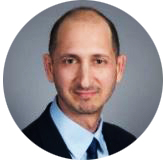Ischemia-Based Treatment Does Not Alter Mortality in Postrevascularization Patients
Download this article's Factoid (PDF & PPT for Gold Subscribers)
Patients with previous revascularization showing silent ischemia on myocardial perfusion imaging do not need a repeat procedure, as medical therapy results in similar mortality rates, according to a study published in the April 16, 2013, issue of the Journal of the American College of Cardiology.
Nael Aldweib, MD, of the Cleveland Clinic (Cleveland, OH), and colleagues looked at 6,750 patients at their institution with a history of CABG or PCI who underwent exercise or adenosine stress myocardial perfusion scintigraphy (MPS) between January 1, 2005, and December 31, 2007. Asymptomatic patients with ischemia (n = 769) were assigned to either medical therapy (n = 654) or repeat revascularization (n = 115). Propensity scoring was used to compensate for the nonrandomized treatment selection.
Over 5.7 years of follow-up, there were 142 deaths. Mortality in the medical therapy group was 18.3% vs. 19.1% in the repeat revascularization group (P = 0.84). On subsequent analysis using propensity scoring, there was no association between repeat revascularization and survival compared with medical therapy according to several statistical models (table 1).
Table 1. Analyses: Survival (Revascularization vs. Medical Therapy)
Model |
HR (95% CI) |
P Value |
Propensity Scoring |
0.91 (0.50-1.66) |
0.77 |
CPH Unadjusted |
0.90 (0.55-1.48) |
0.69 |
CPH Adjusted |
1.18 (0.70-2.00) |
0.53 |
Abbreviation: CPH, Cox proportional hazards.
No imaging variables, including severity of ischemia, were associated with mortality. Factors that were associated with mortality included age and hypercholesterolemia.
“In this MPS-based study, our data found no evidence that repeat revascularization provides a survival benefit, even in patients with inducible ischemia,” the authors conclude. “If invasive downstream therapeutic responses do not alter survival even when ischemia is present, it is difficult to justify using MPS to investigate asymptomatic patients post-revascularization.” They add that routine MPS in such patients is currently deemed to be “of indeterminate appropriateness.”
Appropriate Use Criteria Called into Question
In an accompanying editorial, David J. Maron, MD, of Vanderbilt University School of Medicine (Nashville, TN) and Judith S. Hochman, MD, of New York University School of Medicine (New York, NY), agree that the study “supports the position that (repeat) revascularization of asymptomatic postrevascularization patients does not improve survival,” adding that the results call into question the utility of current appropriate use criteria that recommend postrevascularization stress testing more than 5 years after CABG but reflect uncertainty for such testing within that time frame for CABG patients and within any time after PCI.
They also note that the trial was a single-center observational study that cannot account for unmeasured confounders despite the propensity scoring and statistical methods employed.
In particular, “A remarkable finding in the current report is that, despite selection bias, unadjusted and adjusted outcomes were not superior for those selected for revascularization,” Drs. Maron and Hochman write.
In an e-mail communication with TCTMD, Hitinder S. Gurm, MD, of the University of Michigan (Ann Arbor, MI), called the study “very important,” noting that “[p]rior work (some of it from the same institution) suggests that patients with abnormal stress test findings after CABG (and a smaller body suggesting after PCI) have worse outcome. This has been used to argue for treatment of asymptomatic ischemia in this group as well as for screening stress tests for prognostication. There are no [randomized controlled trials] to support this and this study, although small, suggests that this assumption is probably not true.”
Asymptomatic Patients Represent a ‘Slippery Slope’
Dr. Gurm added that although the population from the current study is asymptomatic, the results are supportive of those from the COURAGE trial, which showed no additional benefit from PCI over medical therapy alone in stable CAD patients.
The principal investigator of the COURAGE trial, William E. Boden, MD, of the Albany Stratton VA Medical Center (Albany, NY), agreed, noting the current study is “somewhat consistent” with a COURAGE subanalysis on patients with silent ischemia.
“I think [the current study] reinforces the fact that it’s a slippery slope with patients who are asymptomatic,” Dr. Boden told TCTMD in a telephone interview. “You have to be very careful and selective about who you subject to revascularization. You shouldn’t revascularize someone with no or minimal or even mild or moderate ischemia. [However], if you have severe ischemia, I would personally feel [revascularization] was justified.”
Dr. Boden added that “it’s a little disappointing that in this group of patients with prior revascularization who had demonstrable ischemia, there was no further improvement in outcomes compared with medical therapy alone.”
Overall, he noted that the results reinforce existing appropriate-use criteria.
“I have always been against stress testing in asymptomatic patients, as are most of my colleagues,” commented Dr. Gurm. “I think this study reinforces that practice.”
Study Details
There were few differences in baseline characteristics between patients who underwent repeat revascularization vs. medical therapy. Patients who underwent post-MPS revascularization had a higher maximum heart rate and rate-pressure product during stress testing, probably because of a higher frequency of exercise testing in this group. The revascularization group also was more likely to have a history of TIA, v-Fib, pulmonary embolism, lower exercise capacity, and greater total ischemic burden.
The time between previous revascularization and index MPS in medical therapy patients was similar to those referred for revascularization (5.4 years vs. 5.0 years; P = 0.18).
Sources:
1. Aldweib N, Negishi K, Hachamovitch R, et al. Impact of repeat myocardial revascularization on outcome in patients with silent ischemia after previous revascularization. J Am Coll Cardiol. 2013;61:1616-1623.
2. Maron DJ, Hochman JS. Revascularization for silent ischemia? Another piece of the puzzle. J Am Coll Cardiol. 2013;61:1624-1625.
Related Stories:
Jason R. Kahn, the former News Editor of TCTMD, worked at CRF for 11 years until his death in 2014…
Read Full BioDisclosures
- Drs. Aldweib, Maron, Gurm, and Boden report no relevant conflicts of interest.
- Dr. Hochman reports serving as a consultant to GlaxoSmithKline.


Comments